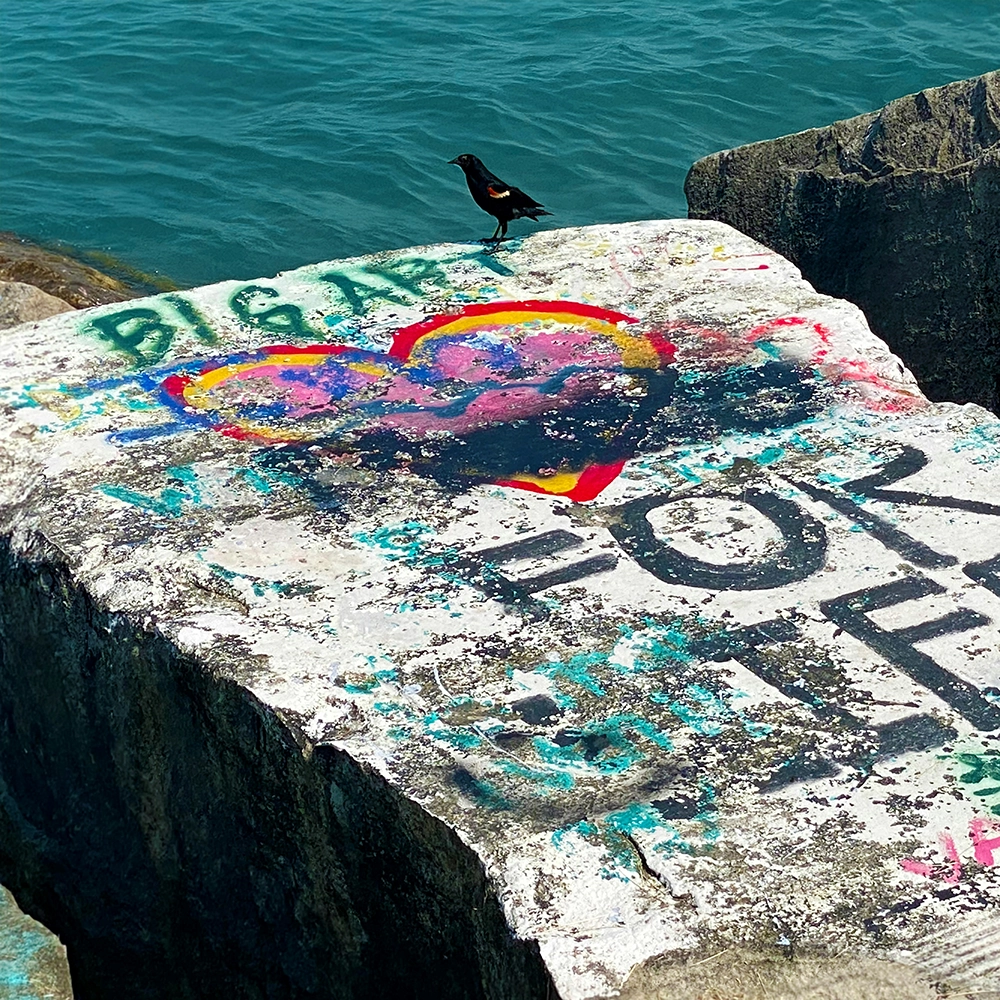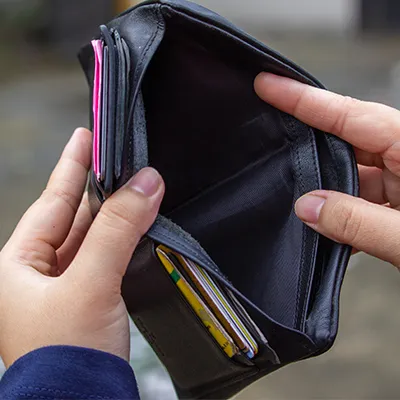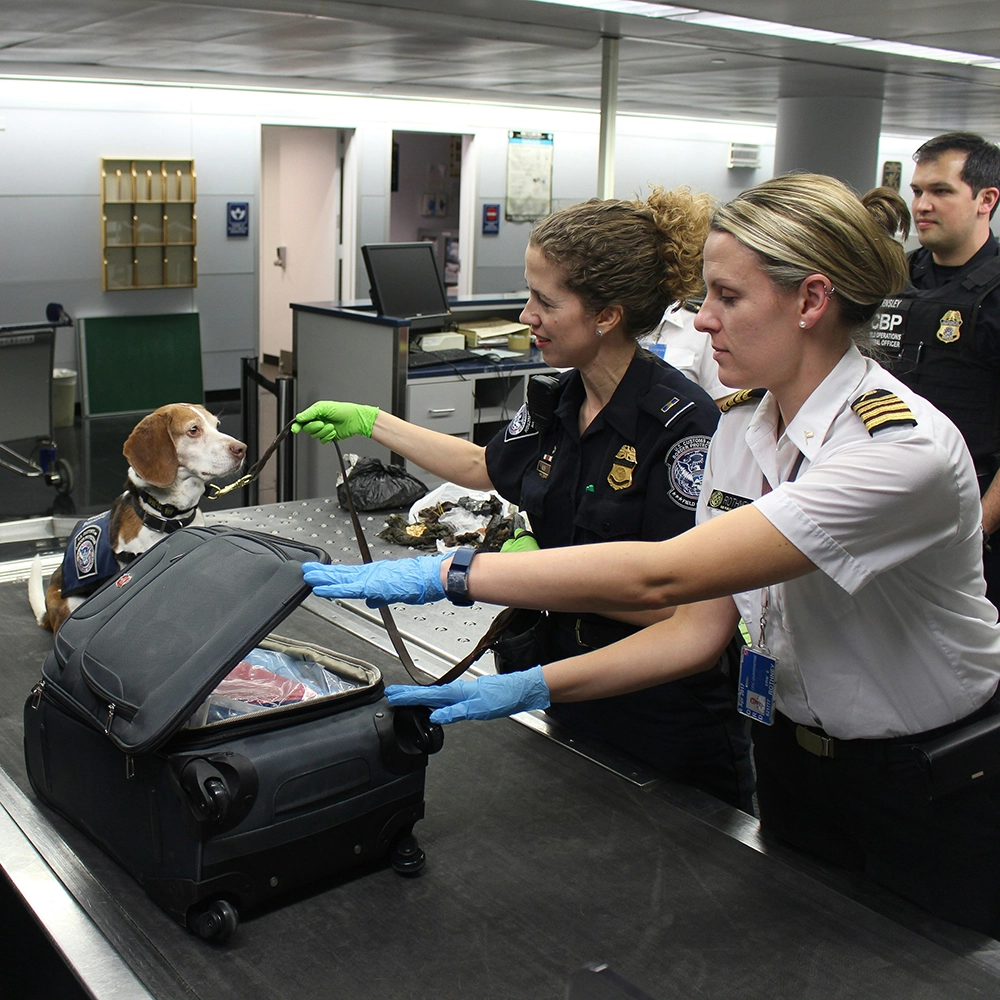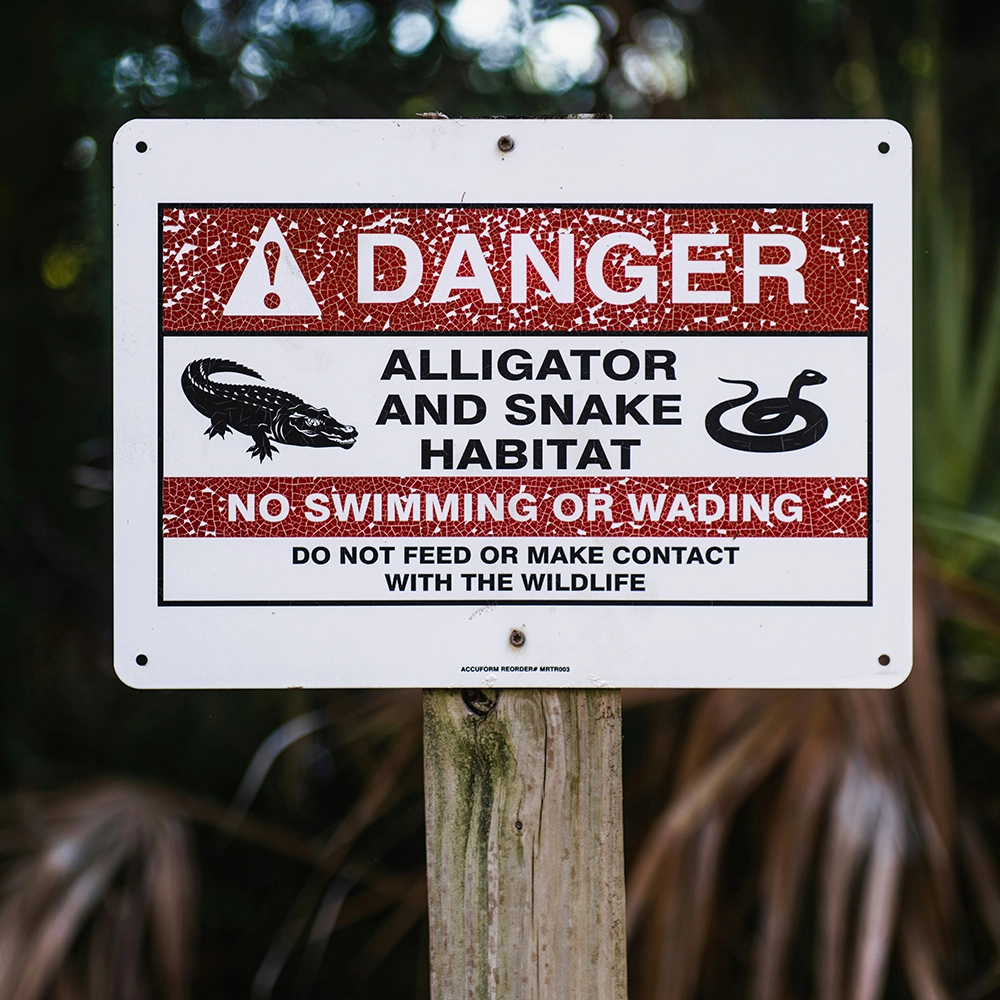We all make mistakes. Some sprout from innocent ignorance, others because we simply weren’t paying attention.
Our missteps are often harmless, but as a traveler in a foreign land, they can lead to some particularly tense situations and bad reputations. The good news is that we can head many of these miscues off at the pass before they become an issue. That’s why we’re sharing some of the most common travel mistakes and how to avoid them.
The Problem with Bad Tourists
CNN published a list of the worst-behaved tourists from 2023, a disturbing collection that includes national park visitors interfering with wildlife (which ultimately led to the animal’s euthanasia), social media influencers disrespectfully disrobing at sacred sites for the sake of a picture, and the destruction of priceless historical monuments.
Amsterdam launched a “Stay Away” campaign in 2023 and “Amsterdam Rules” in 2024, primarily targeting British tourists traveling for stag parties and trying to get them to, well, stay away. Other European cities have proposed legislation against unruly party-loving tourists, and Japan has begun limiting the total number of visitors to popular sites in an attempt to curb overtourism and avoid the fallout of bad tourists.
There are no good outcomes when tourists behave badly. We all need to do our part to respect the places we visit — their people, the environment, and the irreplaceable cultural sites that make them unique and wonderful.
Common Travel Mistakes and How to Avoid Them
1. You didn’t do your research.
So many blunders can be avoided with a bit of research before you leave. Google your host’s local customs, listen to a Rick Steves podcast, chat with someone who’s been there before, or read an old-fashioned guidebook.
Do something — anything — to get acquainted with the social, cultural, and economic norms of your destination. It’ll help you avoid inadvertently offending your hosts.
2. You make unfair comparisons.
When travel introduces you to something unfamiliar, it’s easy to say, “That’s not how we do it at home.” While that’s normal, it doesn’t mean you have to make snap judgements or share your observations.
“There’s a huge difference between mentally noting something unusual and ogling over it with your travel companions,” says traveler writer Grace Lower. “Once you begin comparing your host country to your home country, it’s all too easy to start thinking of each place as ‘better’ or ‘worse’ than the other.
“Instead, try leaving your preconceptions at home. You might be surprised by how your perspective will change along the way.”
3. You overgeneralize.
Your time in a new place is a mere snapshot. As Grace reminds us, your experiences are not necessarily representative of an entire host country.
“If you had bad service at a restaurant in Belgium, it’s probably not fair to write off all Belgian food service as subpar. Your visit to Morocco, enlightening as it may have been, does not necessarily make you an expert on African culture. And if you start making blanket statements about entire countries, religions, or groups of people? There’s a good chance you’ve crossed into bad-tourist territory.”
4. You don’t observe personal space.
Hopefully you’re having real-life interactions with locals at your destination. How close you stand to them can make or break that interaction, and etiquette around personal space can vary greatly by culture.
Here’s Grace again: "No matter where your travels take you, take a cue from the people nearby. If you notice that everyone is comfortable cramming into a subway car like sardines, then by all means, jump in there and join them! But if you’re in a country where people keep their distance, be sure to follow suit. You never want to be in a position where you’re making others uncomfortable. Staying mindful of your personal space is an important preventative measure.”
Remember that displays of public affection also vary. Hugging, holding hands, and kissing (Do I give a little peck on the cheek two or three times in Paris?!) are signs of intimate relationships in one culture but could be exchanged between virtual strangers in another.
Be respectful not only of how you show affection, but how you judge others for how they display theirs.
5. You run out of money on a trip.
A smile can go a long way (see #14), but it won’t fix everything. People — hotel receptionists, taxi drivers, food vendors, and avocado salesmen — all want you to pay up.
Some of the worst tourists get their reputation by walking out on paying the bill. You don’t want to be that guy, so budget your trips accordingly.
“One great way to budget for a trip is to get a feel for how you typically travel and how much you spend on average,” says travel writer Luke Armstrong, who has had to manage more than one travel budget during his decades of travel. “This is easy to do. Just keep a before-and-after budget for all your trips, then compare your anticipated versus actual expenses.”
Try a site like Expatistan to get an idea of how expensive a particular city or country is. You simply enter your destination and where you currently live. The site then compares the cost of living — food, transportation, entertainment — in those two locations.
6. You don’t take adequate precautions.
Also known as common sense, this includes things like wearing motorcycle helmets, only trusting sober drivers, buying travel health insurance, taking malaria pills, drinking only uncontaminated water, and not leaving your drinks unattended.
But every friend group has someone that lacks common sense (it’s definitely not you). The best way to avoid these snafus is by trying to be mindful.
“I make stupid decisions daily,” says Luke. “Although I have been to a quarter of the world, I have no sense of direction. I book tickets from Paris to Iceland when I mean to book a ticket from Iceland to Paris. But I don't get too down on myself for my ongoing shortcomings (there's too many too often for that). I just try to be mindful, do the right thing, and keep a sense of humor when I boof.”
Be a good tourist and pay attention to what you’re doing.
7. You pack forbidden items
The savviest travelers are always trying to figure out how to pack light. When it comes to being a good tourist, packing well also means packing the right things, no matter how much or little.
For example, Prague is attempting to pass a ban on "silly costumes," which officials claim are worn by party-going tourists and are hazardous (although there’s some debate about what these laws would actually accomplish).
Many countries have strict rules about what you can bring over their borders. Japan is notoriously restrictive when it comes to medical equipment and prescriptions. Every country screens for weapons, but Turks and Caicos disallows ammunition regardless of whether you have a gun in your luggage.
It’s common to see bans against entering a country with fruits and vegetables, meats, and wildlife. Fun fact: Hawai’i in the U.S. doesn’t allow hamsters.
Not adhering to their laws can get you removed from the country, sometimes on a permanent basis.
8. You limit yourself to only what you know.
We travel to build a relationship with the world. As Luke puts it, “Tried and true trips are as lovely and comfortable as a longtime lover. Keep these recurring destinations in your life. But you're allowed to have an open relationship with the world. You're allowed to have a one-week stay in Greece, love every second, and catch a crack-of-dawn flight out and never look back.”
The more we travel, especially to unfamiliar places, the better we get at it. That makes us better tourists and better people.
9. You book at the wrong time.
Timing — in love, travel, and life — is everything. As you plan your trip, decide where you want to go and then figure out the best time to do it. It’s as simple as asking Google, “When’s the best time to visit …?”
Part of being a good tourist is choosing that right time. The right time might not be at peak season, when everyone else is there clogging the streets, putting strain on the destination’s resources, increasing pollution, and driving prices too high for locals to afford.
Instead, consider traveling during shoulder season. This often makes it cheaper for you, but it’s also usually better for your hosts.
10. You don’t protect your valuables.
Leaving unnecessary valuables at home and protecting the ones you do travel with is a big part of keeping yourself safe. These items can sometimes make you a tempting target for thieves.
But not flaunting your valuables can be helpful to your host as well. For example, you might not think much of your last-generation iPhone, but these devices can be highly desired in other places where they’re too expensive for the average person or even impossible to find in stores.
Putting your (relative) wealth on display can come off as disrespectful. And, not that it’s necessarily your fault, if you do get pickpocketed and your valuables make it on the black market, that’s not great for the local economy either.
Avoid this travel mistake by only carrying the essentials.
11. You break the law.
“You wouldn't (or at least shouldn't) walk down 5th Ave. in Manhattan drinking a beer, so don't do the blatantly illegal just because you're abroad,” says Luke. “t's as easy, if not easier, to get arrested abroad as it is at home, and it's typically a much bigger hassle.”
One good place to start is to simply pay attention to signs. Beaches that post “No nudity” or “No swimming” say that for a reason — it's illegal and/or unsafe.
Historic sites like the Coliseum have begun hanging signs pleading with visitors: “No climbing or writing on walls.” Why? Because not only is it plain wrong to deface a monument, it’s also illegal.
Follow all traffic signs and only walk or drive where it’s permitted.
12. You don’t buy travel insurance.
Travel insurance is good for you — it can save you money by reimbursing you for insured trip costs if you have to cancel your trip or to replace items in your lost luggage. It can also pay for medical care if you get sick or hurt during your trip, which is not only good for your own wallet, but also good for your host.
When countries started reopening for travel after COVID, many required you to have travel medical insurance before crossing their border. One of the reasons for this was to show proof that you could pay for treatment if you got sick and not put unnecessary strain on their already stretched medical resources.
Although we’re less concerned about COVID now, the idea holds true. As a foreign visitor, you don’t want to take valuable resources away from your hosts unnecessarily. Even in countries with universal healthcare, you are not entitled to free medical treatment. That’s for residents who pay taxes into that healthcare system.
Getting travel insurance to cover your medical care is part of protecting your own health, but it’s also part of protecting your host country.
13. You don’t follow your own heart.
It’s easier than ever to get caught up in the glam and sparkle of the latest influencer or be overcome with jealousy about coworker’s latest trip.
“We all do it. It's so easy to get lost in the longing to see the world and forget to be present in appreciation of each moment in the world,” says Luke. “Be a bold and intrepid traveler, but go the places you want to go, see the sites you want to see, and have the experience that fills you up. InstaGirl and Coworker Carl don’t own you. Travel your way.”
You might even find that going off the beaten path (where InstaGirl isn’t driving everyone else) is good for the host. Why contribute to overtourism to a place you didn’t really want to visit anyway?
14. You forget about the power of kindness.
Some people fall into the trap of thinking their tourist dollars entitle them to whatever they want. But at the end of the day, your host country doesn’t owe you anything. At some point, something won’t go according to plan, you’ll be inconvenienced, or you might simply be grossed out (being served an entire fish, eyeballs and all, can be a shock to some diners).
Remember to be patient and kind before you react.
“Take deep breaths during long lines and use heavy traffic as a way to take in the scenery around you. Be kind to everyone around you, too — even if there’s a language barrier. Thank your servers, drivers, and hosts graciously. Tip when it’s expected, and compliment others with sincerity,” says Grace.
“Practice gratitude when you can and remember how fortunate you are to be able to travel, even during those less-than-glamorous moments. And above all else, try to leave every place better than you found it.”
Travel Insurance for When Plans Go Bad
Mistakes happen. Sometimes they’re our own doing, and sometimes the universe just conspires against us. Be prepared for whatever life throws your way, including buying travel insurance so you can weather those storms.
Talk to a Seven Corners licensed agent or get a quick quote online for the best travel insurance — trip cancellation, trip delay, baggage protection, medical coverage, and more — just in case your epic adventure suddenly goes bad.
About the Contributors
Luke Armstrong and Grace Lower contributed their advice from decades of worldwide travel experience. They hope that you can learn from their mistakes and observations.
This article was edited by Becky Hart.





